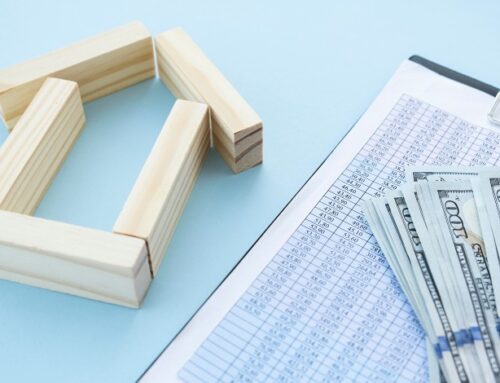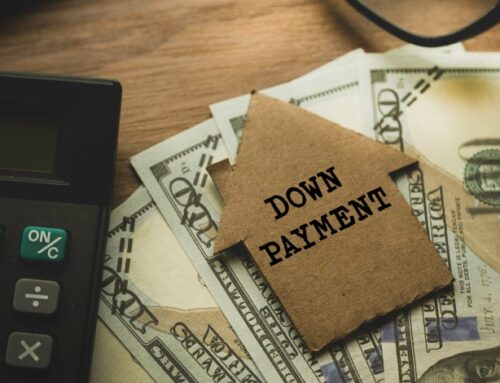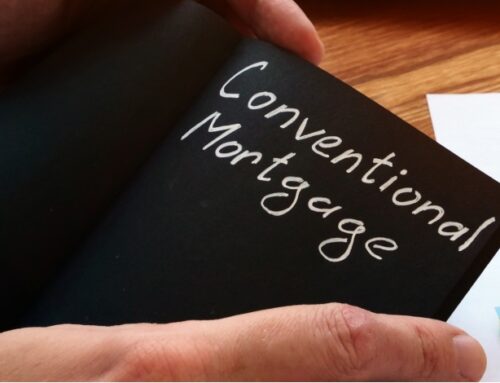If you’re on the move, you may be considering your choices between renting vs. buying a house. According to the latest U.S. Census Bureau data from 2019, about 36% of the country’s 122.8 million households were renters. The choice to rent or buy a home may make more sense depending on your current financial situation and long-term financial and residential goals.
Since where you live is one of the most significant decisions you make, it helps to compare your options and consider renting vs. buying a house pros and cons. This guide explains some things to think about.
Consider The Pros And Cons Of Renting And Buying
Both renting and buying come with pros and cons that can affect you in the short- and long-term. Each person’s financial situation is different. Your homeownership and living situation goals will also influence your decision. Consider these factors.
When renting a home makes sense
Renting a home makes sense for many people for a variety of reasons. First is the cost of owning a home vs. renting. When you own a home, you typically have to contribute at least 3.5% of the home’s total purchase price toward a down payment. If you want to avoid paying private mortgage insurance (PMI) in addition to your monthly mortgage payment, you’ll typically need to pay at least 20% of a home’s total purchase price for the down payment.
Renting a home typically requires less maintenance than owning a home. When you own a home, you’re in charge of repairs and taking care of issues like pests or rodents. When you rent, your landlord will usually coordinate maintenance.
Also, if you know you’ll only be in a place short-term, renting may make more financial sense. In 2019, “Forbes” reported it takes people an average of 4 years to recoup the upfront costs of buying a home. Homeowners can expect the rate of return from their home purchase to fall between 8% and 10% each year, which is a similar rate of return as investing in stocks.
If you know you’ll be in your new home for four years or less, it may be less of a hassle to rent. You could make a similar return on investment by investing elsewhere, like in the stock market.
It’s important to keep in mind, though, that rents can go up frequently. What you’re paying now may not be what you’ll have to pay next year or the year after. For that reason, renting long-term, when you’re in a financial situation to purchase a home, may not make sense. As a homeowner, you may get a fixed-rate mortgage, which means your monthly payment will stay the same month-to-month over the life of the mortgage.
When buying a home makes sense
Considering the reasons above, buying a home may make more sense. If you envision your next home as your forever home or at least one that’s long-term, where you’ll be living for more than four years, you could build equity in a home when you purchase it.
That can help you diversify your investments. The more home payments you make, the more homeownership you’ll have. With a rental, all your payments become the landlord’s property.
As a homeowner, you can make whatever renovations you want to a home. You could knock down walls, install new cabinetry or even add a pool to your yard. Renters aren’t able to customize their homes as much as homeowners are.
Some rentals may have other restrictions, like pet ownership, for example. If you’re in a rental that doesn’t allow pets, but you want a puppy, you’ll have to wait to move. As a homeowner, you dictate the terms of your living situation.
If you have enough funds to make a considerable down payment on a home, especially one that’s at least 20% of the purchase price so you can avoid PMI, you may also be able to get a lower monthly home payment than you might pay as a renter. But keep in mind, homeowners must also pay for repairs, maintenance and renovations, which could increase your monthly payment and make yours higher than it’d be as a renter.
As a homeowner, there are other ways you can make money while you live in your home. You could rent out a room to someone else to help cover mortgage costs. Some people even rent out their homes on a home-sharing site for extra income when they’re on vacation. You might not have this option as a renter.
What To Consider When Deciding To Rent Or Buy A Home
If you need help deciding whether to rent or buy a home, it can help to talk with a financial advisor. A professional financial advisor can look at your financial situation and analyze your goals to help guide you to the best decision.
You and anyone who’s deciding with you should weigh these factors when choosing between renting and buying a home.
Length of occupancy
First, determine how long you’ll be in the home. If you will be there less than four years, but you want to keep the home and rent it out to others as an investment property, you may be able to make a return on your investment in the home.
But you’ll also want to consider your next step after leaving that home. If you need funds to purchase another one, it may make more sense to rent and save toward a down payment for your long-term home while you’re renting.
If you know you’ll be in your next home long-term, it may make more sense to purchase your home. That way, you’ll be building equity with your home payments and can recoup money if you do decide to sell in the future.
There’s also a potential financial benefit with buying, in the form of tax savings. When you’re a homeowner, you can make tax deductions like:
- State and local real estate taxes
- Home mortgage interest
- Mortgage insurance premiums
Renters don’t get these tax deduction perks. However, renting does provide you with flexibility. Leases can be a year or even just a few months. You can move out without having to deal with a home sale and potentially losing money if your home is left unoccupied while you search for a new buyer.
Estimate the cost of renting vs. buying
Your credit score will usually play a big role in what kind of mortgage terms you can get. If you have a poor score but you’re working on building your credit up, it may be wiser to wait to purchase a home so you can increase your score and get better terms. That could help you save over the length of your loan.
In addition to the home’s purchase price, there are other costs associated with buying a home. These may include:
- Home inspection costs
- Closing costs
- Home maintenance expenses
- Utilities, trash, sewer, water
- Renovation expenses
- Homeowners association (HOA) fees
- PMI, if your down payment is less than 20% of the home’s purchase price
Your mortgage payments will include interest you’re paying to the lender, as well. When you rent, your bill may cover your space and, in some cases, other bills like electricity and cable. As a homeowner, you’ll be on the hook for expenses like these.
As you total up an estimate for a monthly mortgage payment, you should also consider other bills you owe. If you’re currently in debt, taking on more debt in the form of a mortgage might not make sense for your financial plan. You may instead want to rent and focus on paying off your debts before buying a home.
Also, consider the financial value of your time. As a homeowner, you’ll need to spend time either coordinating or doing your own landscaping. Upkeep is typically taken care of and included in your monthly bill as a renter.
Want help? Check out Arizona Central Credit Union’s handy Rent or Buy calculator.
Weigh the risks of renting and buying
If you’re buying a home with the intent of it being a long-term financial investment, it’s important to be aware that every investment carries risk. That includes investments like stocks, money market funds and employer 401(k) accounts.
The housing market is constantly evolving. One year, some geographic locations may have higher increases in home values, while the next year, an entirely different segment of the country may experience a boom in home prices and demand.
According to “Fortune,” between August 2020 and August 2021, home prices increased a record 19.9%, which beat the previous biggest 12-month increase at 14.1%. But home prices are rarely predictable. Just like with stock markets, values can fluctuate from year to year.
That’s why some advisors will tell people who are considering buying a home to have other reasons than just financial reasons for the purchase. If you know you want to live in the home for years and potentially make a good investment, then purchasing a home may make sense for you.
Is Renting Or Buying Better For You?
Ultimately, the decision between renting vs buying will heavily depend on your current financial situation. If you purchase a home when you don’t have the finances to sustain your purchase long-term, that can make you a stressed-out homeowner. Sometimes renting is a better short-term solution, even if it costs more in the meantime while you rent.
If you decide to purchase a home, Arizona Central Credit Union can help you with a mortgage. Call us at (866) 264-6421 or contact us online, and we’ll be in touch.




